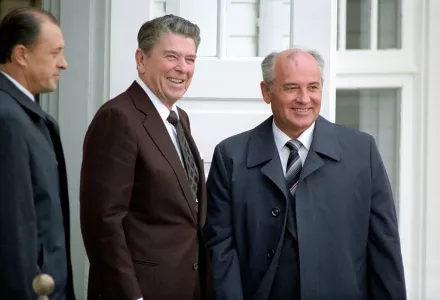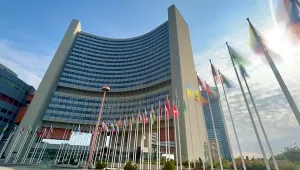Nuclear Abolitionism and the End of the Cold War
Stephanie Freeman, Ernest May Fellow in History & Policy, International Security Program
During most of the Cold War, U.S. and Soviet officials built a broad consensus among their publics that nuclear weapons provided essential security by deterring the actions of hostile states. In the 1980s, however, the radical goal of nuclear abolition enjoyed staunch support from both grassroots movements across the globe and the leaders of the two superpowers, Ronald Reagan and Mikhail Gorbachev. This presentation will examine nuclear abolitionists' influence on the trajectory of the Cold War's last decade, from 1979 to 1989. It will assess anti-nuclear activists' impact on elite decision-makers and consider how their shared interest in nuclear disarmament transformed U.S. and Soviet foreign policy in the 1980s. This talk will demonstrate that nuclear abolitionists played a decisive yet unappreciated role in ending the Cold War.
Please join us! Coffee and tea provided. Everyone is welcome, but admittance will be on a first come–first served basis.




